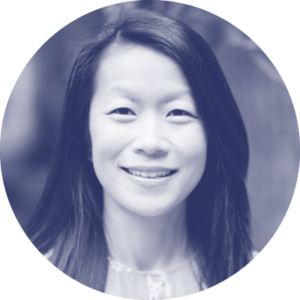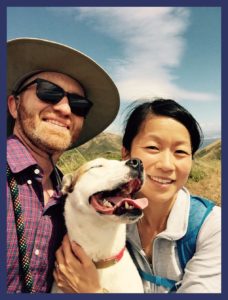What are your gender pronouns?
She/her/hers
Where are you from?
I was born in Korea and adopted with my sister when I was a baby and she was a toddler. I grew up within the city limits of Detroit along with my parents and three siblings, and am proud of the commitment that my parents had to raising us in a diverse and close-knit neighborhood. Our community was rooted in social justice and laid the foundation for who I have become and how I learned the importance of advocacy.
What’s your specialty or area of expertise?
I am a primary care provider in the Bay area where I work in the safety net and care for underserved and uninsured patients. I enjoy teaching and helping students and trainees identify ways in which they can make reproductive health care a part of the primary care that they provide for their patients.
What first inspired you to become a doctor?
It is hard to pinpoint the exact moment, but I think a lot of it stems from the encouragement that I received from my family, teachers, and neighbors to pursue my interest in science and medicine tied with my roots in social justice. We lived in a mixed income neighborhood, and my parents used to drive kids to school or the library who otherwise could not get there and give our neighbors food and money when they needed it. We bonded as a family around doing community service both locally as well as in our greater city so I felt compelled to do something with my life that would impact many not the few. In undergrad I studied biology and anthropology and it allowed me to be able to see that my passion for understanding the world around me could be connected to my dedication to science. In my graduate studies, I was able to travel abroad and work with physicians in urban and rural Tanzania to study the experience of childbirth within the public and private sector of health care. It was during this time that my passion for medicine was solidified in that I was able to see a career where you could care for an individual, but also witness the importance of the social determinants of health and work to make an impact on the social structures in which we all live, seek care, and work.

What current policy issue especially motivates you to be an advocate?
The ever-changing landscape of family planning and abortion legislation, and the move towards stricter abortion legislation in many states, motivates me to be an advocate. The fact that a woman’s ability to choose whether or not she has an abortion is based on where she happens to live or the money and resources that she may or may not have in her possession is an injustice. I want to be a part of the change that needs to take place in order for women to be heard, trusted with their decisions, and to have equitable access to evidence-based health care when a woman wants or needs these services.
How do you practice self-care?
My family centers me. My favorite moments are when we are outside and enjoying nature around us. Also, pedicures are a real way that I get a small chunk of me time in and read nonsense magazines.
Who is your social justice hero?
RBG. She is everything.